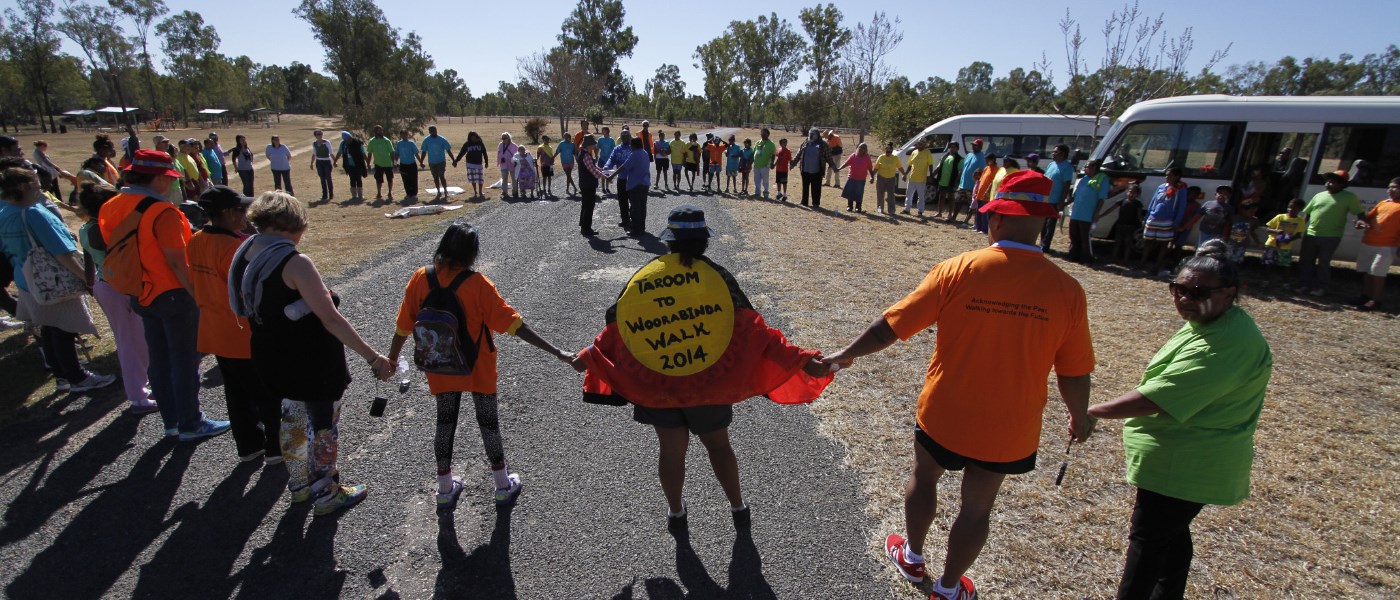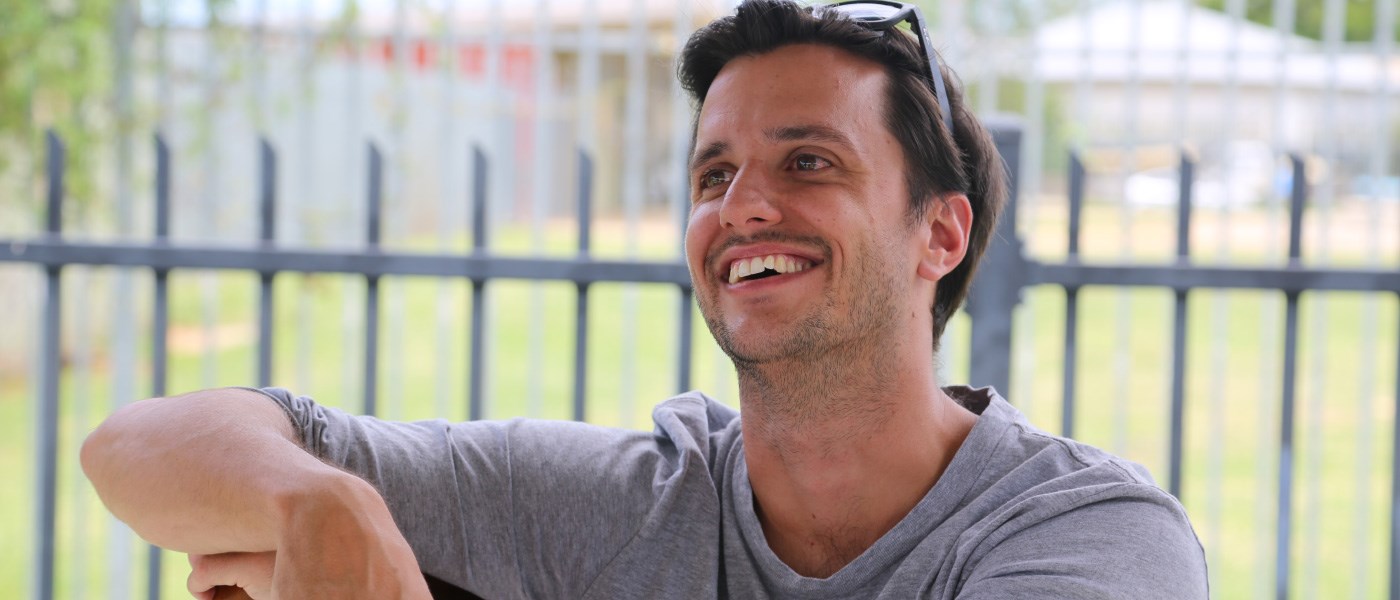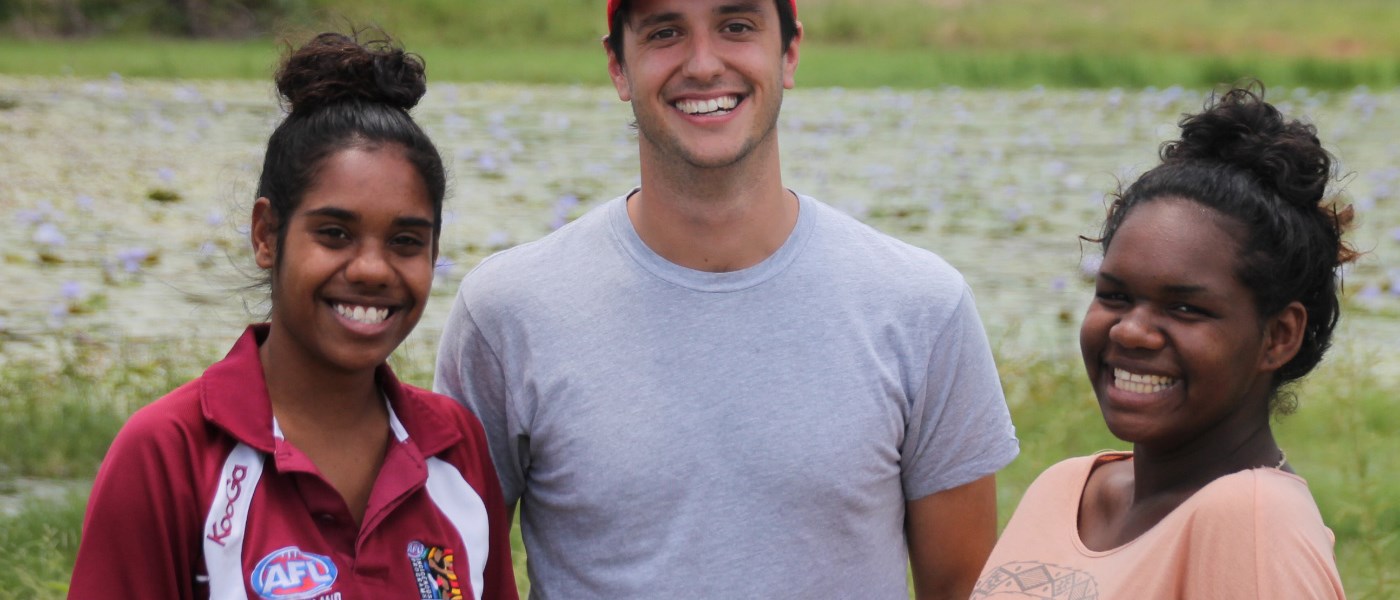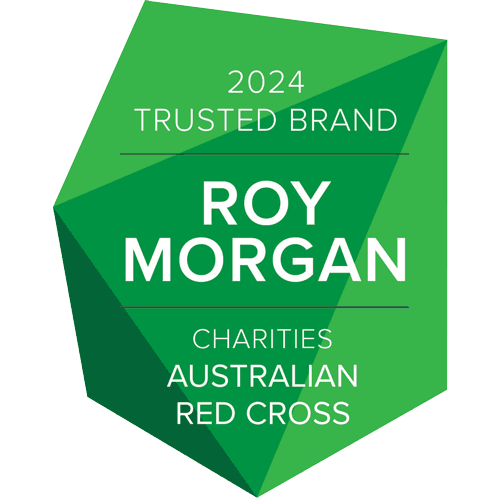Building a new dreaming
How an Aboriginal community, and a young Sydney man with a laptop and microphone, fostered a generation of musicians, actors, dancers and film producers.

Kangaroo sit down
Music and laughter can be heard for miles. The community’s only pool is packed with people escaping the summer heat. Elders are sitting around the stage, tapping their toes to familiar old tunes. A giant slide and little mopeds are keeping kids of all ages entertained.
The feeling is festive and this community has much to celebrate. Under the guidance of Elders, the Kulgoodah dancers have won a national Indigenous dance competition. A group of year 12 students has graduated with big dreams for their futures, and the community Deadly Awards will be announced later that evening.
We’re in Woorabinda, an Aboriginal community three hours’ drive west of the beef capital of Queensland, Rockhampton.
Situated on the Traditional Lands of the Wadja and Gungulu peoples, Woorabinda means "kangaroo sit down".
It was established between 1926 and 1927 by the Queensland Government to replace the Aboriginal reserve at Taroom. Every year the community re-enacts the 200-kilometre walk from Taroom to Woorabinda to honour their ancestors.
The Queensland government of the time removed Aboriginal people to state-controlled reserves and church missions and, as a result, 52 different tribal groups from Queensland, New South Wales and the Northern Territory were sent to Woorabinda.
Like other Aboriginal communities, Woorabinda’s past is brutal and continues to impact the present. Lands dispossessed, families torn apart, slave labour, racism and discrimination. Ongoing trauma is passed through generations, leading to reduced life expectancy, poor health outcomes, limited education, high unemployment and over-representation in the criminal justice and welfare systems.

Can you do anything with horses or music?
But alongside the pain and suffering, there is resilience, strength and hope. Today’s community event is an opportunity to celebrate survival, success and opportunities.
Amongst the crowd is Stephen Collins, making sure the event is running smoothly and preparing for the Deadly Awards.
Migaloos (white fellas) come and go in Woorabinda. Some, like officials, pop in for the day; others, like maintenance crew or builders, for a few weeks or months. Only a few, like Stephen, stay for years.
Stephen came to Woorie, as it’s affectionately known, with plans to stay “just a short while”.
“I said, ‘Yeah, I’ll spend about a month and that should be right.’ It’s been 67 months!” he says with a laugh.
With some “time on his hands”, 22-year-old Stephen from Sydney emailed the Woorabinda council explaining he wanted to set up a “sustainable program in the community”.
Exactly what? He didn’t know. Exactly how? He wasn’t sure.
Council sent the request to Red Cross who suggested Stephen visit for a week and speak to the Elders and young people.
“The Elders asked me if I could do something with music or horses.
“I didn’t know anything about horses. I fortunately had a background in music. So, I came back a month later with a laptop and microphone.”

Building trust
Stephen combined his passion for music and multimedia with his skills in youth work to provide a creative outlet for young people.
Boredom in the community can lead young people into trouble like alcohol abuse, vandalism and fighting.
With a safe space to express themselves, kids were filming and editing short films and music videos. They proudly shared their clips on the new Woorie YouTube site and at community film nights.
“From pressing ‘record’ on a laptop, you get these amazing stories and amazing young people challenging themselves to get their voices heard. They realise they do have an important story and that their story does matter, and their voices do matter,” Stephen says.
Red Cross regional manager Sam Meeks says Stephen built trust among the community’s adults through his work with the kids.
“Stephen has a real genuine nature in engaging with young people. He’ll listen to the young people. He’s always boosting them up and the kids respond to that validation.
“The parents can see the journey their child has gone on with Stephen. The confidence, they’re talking more, they’re not shame and they’re giving things a go,” Sam says.
A voice
The video project planted a seed.
From budding musicians to film producers, editors and actors, the stories captured gave the community insight into how the young people were feeling.
Videos like ‘No More Violence’ and ‘Boys Gotta Stop’ (above) spoke to adults and peers to stop fighting, drinking and taking drugs. Others like the ’Marrin Gamu Song’ by Woorabinda State School, celebrated culture and language.
Jobe Adams was a shy 14-year-old who wanted to change negative perceptions about his community. He directed and edited ‘Yolanda’, about his little cousin and her love of her family and Woorabinda, and ‘Buloo’, about a young Indigenous boy who wants to be like his grandfather when he gets older.
Now, the very confident 18-year-old is in front of the camera, studying acting in Sydney.
With support and self-belief, Woorie kids developed a youth leadership group and are running annual youth festivals.
“We have eight-year-olds doing the sound engineering!” a beaming Stephen says. “It showcases the talent, resilience and strength of Woorabinda young people, to challenge themselves and grow.”
Listening, learning, sharing
Stephen grew up in the suburbs of Sydney and had very little knowledge about Aboriginal and Torres Strait Islander peoples. He had never heard of Woorabinda, and never worked in an Aboriginal community.
How Stephen ended up in Woorie, well, “some of the Elders have told me it’s just some things are meant to be.
“Since I’ve been in Woorabinda I’ve learnt everything that I never thought I needed to know, all the lessons that I never knew there were to learn.
“Having spent time in Woorabinda and being adopted into a family here. That’s given me a deeper understanding of issues. I will never feel the impact of intergenerational trauma and I acknowledge there’s things that I will never understand fully in the cultural connections.
“But, I am able to share my understandings with people I went to school with in Sydney, my family, people I studied with and help them gain more perspective about Indigenous people,” Stephen says.
Sam says from the moment he arrived, there was just something special about Stephen.
“You don’t normally see someone who just fits.
“One of the best things that you could do as a non-Indigenous person coming into communities is to absorb. Let the community get to know you. Don’t do too much of the talking, but just a lot of the listening.
“Stephen did a lot of that. That's where he learnt the true essence of what it is living in community with the locals,” Sam says.

Friendships and families
The big community celebration also marks Stephen’s last day in Woorabinda.
The Sydney-sider who came for a month, five and a half years ago, is leaving Woorie as a son, uncle, brother, cousin and friend to all. He is a mentor, confidant and advocate to the young people in Woorie.
The Hill family has adopted him and so, too, has the whole community. Families from both sides have opened their homes and hearts making lifelong friendships and connections.
“I’d like to acknowledge the Traditional Owners, the Wadja and the Gangulu people, and acknowledge the Elders that came to Woorabinda when there was just dirt and trees and to not only build houses, but build a community out of 52 different tribes. I can’t imagine what that would have been like, to say, ‘We don’t have a choice in this. Let’s make it the best we can.‘
“I’d like to thank the Woorabinda community, the Elders, my family in Woorie, the Red Cross for supporting me, it’s been an amazing journey.”
Stephen reflects on his time in Woorabinda and that email to council nearly six years ago, with an idea to “develop something sustainable”.
He believes he’s done that. The Woorie community’s young people have a voice, their creativity is burgeoning, and a new generation is inspired to be confident and strong.
Sam says she’s learnt an important message from Stephen. “Ask a young person what they want, work with them to develop what they need, showcase and share their talents - and expose that in a positive light.”
Stephen’s parting message to a community that embraced this young Migaloo with a laptop and mic.
“The whole of Woorabinda community, I can’t understand, and I never will, their depth of trust and the humbleness, to allow a white person to come into a community when so much damage has been done before, and allow that person to work with your children. You’re most precious gift, to allow someone to do that and trust them and walk on that journey. It’s been beautiful.
“One of the Uncles said the other week, ‘We are building a new dreaming.’”

Let’s make reconciliation real
Join us and make your own commitment to reconciliation.
Charity donations of $2 or more to Australian Red Cross may be tax deductible in Australia. Site protected by Google Invisible reCAPTCHA. © Australian Red Cross 2025. ABN 50 169 561 394
